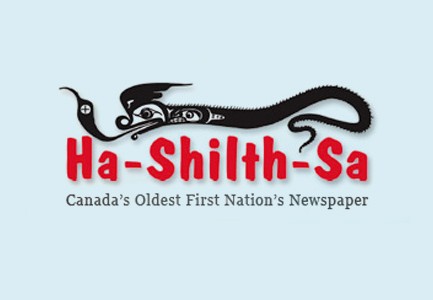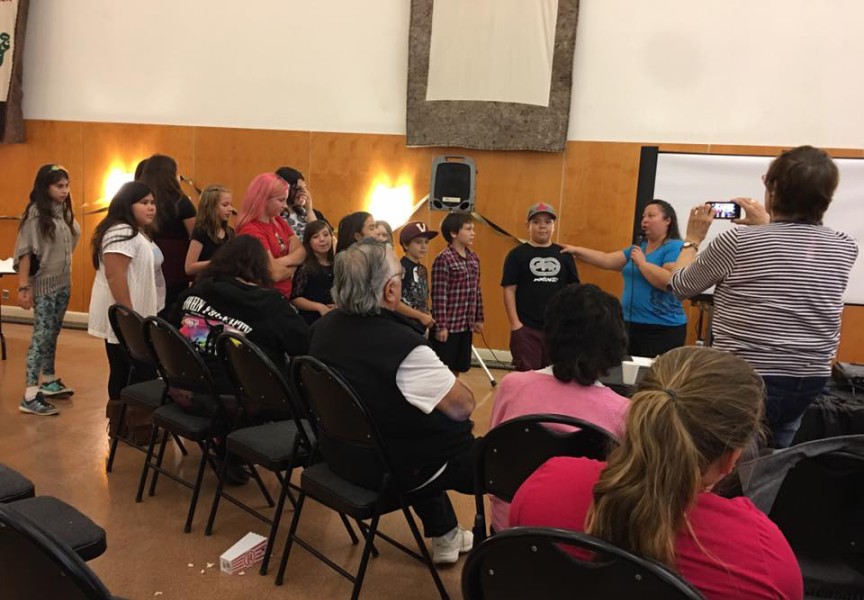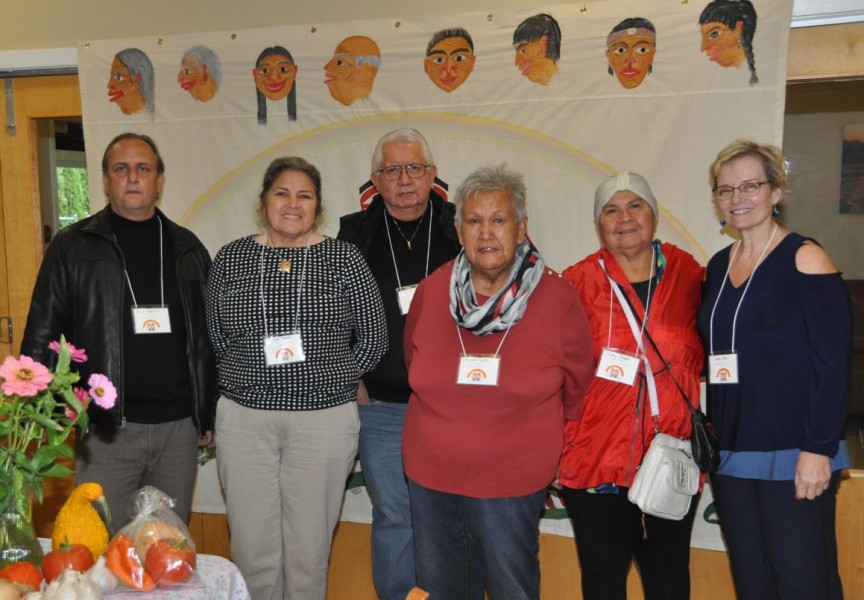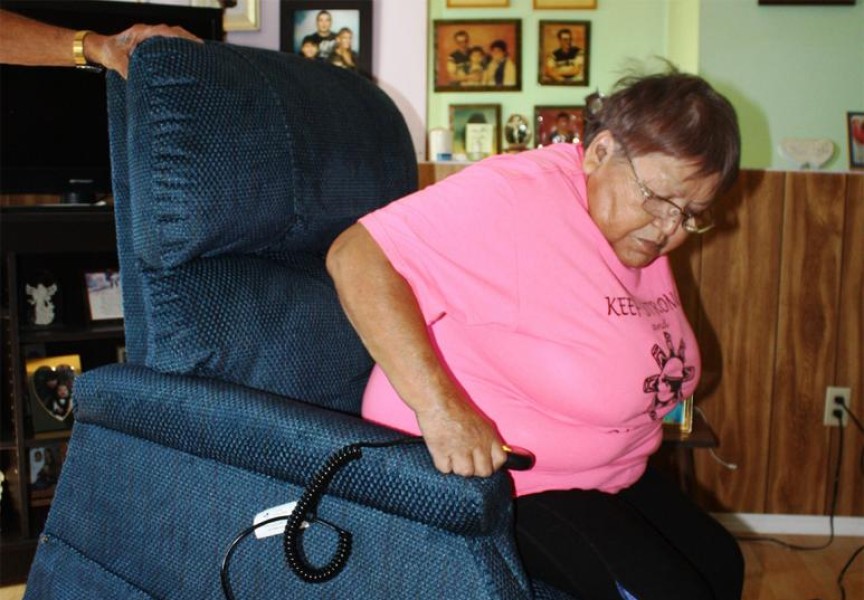The five Maa-nulth Nations acquired new powers under a memorandum of understanding with the province signed Tuesday morning in the Tseshaht Great Hall.
Aboriginal Affairs and Reconciliation Minister John Rustad joined the chiefs of Huu-ay-aht, Kyuquot-Checklesaht, Toquaht, Uchucklesaht and Ucluelet for a joint signing ceremony. After an opening prayer by Ron Hamilton, representing Hupacasath, Tseshaht Chief Councillor Hugh Braker welcomed the guests.
“This is a happy day for Tseshaht, seeing our Maa-nulth brothers and sisters signing an accord,” Braker said. He conceded, however, that Tseshaht did once reject the treaty process. “But I would like to assure the people in the government, and the minister, that Tseshaht stands behind Maa-nulth in achieving their goals and in their successes, 100 per cent, as they proceed along the path that they have chosen.”
In acknowledging the assembled leaders and elders, Rustad said he was struck by the meaning of the opening prayer.
“The calling in of the ancestors and the elders to keep us on the straight and narrow, that’s something we could use in the Legislature,” he said.
Noting that Maa-nulth was the first treaty signed on Vancouver Island under the BC treaty process, and the first multi-nation treaty in B.C., Rustad said he was aware of how momentous it has been for those five nations to “come out from under the Indian Act.”
He cited a telling event that took place after the Implementation Agreement was signed in April 2011.
“[The leaders] built a fire and they had a printed copy of the Indian Act, and they burned it one page at a time,” Rustad said. “I can’t imagine the feeling of release that would have come with that.”
Under the MOU, the five nations take jurisdiction of the foreshore lands they acquired under the Maa-nulth Treaty, with law-making powers similar to municipalities and regional districts. The areas covered include municipal services, public health and environmental protection.
Under a new Framework Agreement, provincial enforcement officers will now be empowered to enforce laws enacted by the Maa-nulth Nations.
Perhaps equally important, the province has committed to change existing regulations to allow the treaty nations to have access to capital under the First Nations Financing Authority, something that is critical if the nations seek to develop businesses and services on the foreshore properties.
Uchucklesaht Chief Councillor Charlie Cootes Sr., who serves as president of the Maa-nulth Treaty Society, said it has been a “long, bumpy journey” during his own 21 years in the treaty process.
“From the first Europeans that came to this country, we have been negotiating, trying to negotiate our place in the mainstream of this country,” he said.
With the implementation of the Maa-nulth Treaty itself, and the new adoption of powers, Cootes said “the hard part” is just beginning. One critical factor will be to get “buy-in” from the communities, he added.
“We are now accountable to our people – not to Ottawa,” he explained.
Huu-ay-aht member Tom Mexis Happynook, vice-president of the Treaty Society, said it is time to move forward in building communities, using the treaty as the tool.
“We have successfully shed the shackles of the Indian Act, and have risen from the ashes of colonialism. We are now standing on our own two feet, making our own decisions about the future for our communities and our people,” he said.
Happynook said all five nations delivered positive, upbeat reports at the Maa-nulth AGM, which took place the previous day.
“We are all super-busy, building our nations,” he said. “It really solidified the concept that we did make the right choice when our people said, ‘We want a treaty.’”
Following the conference, Rustad said the Maa-nulth Nations would have the power to create bylaws to administer the foreshore. Foreshore property by definition includes the shoreline above the high tide mark plus the intertidal zone. Those waters beyond the low tide boundary are administered by the federal government. Rustad was asked if the MOU included any tie-in agreement with Ottawa in relation to the affected waters.
“No.”
Cootes said none of the five nations have specific plans flowing from the MOU, and that there will be a lot of planning and consultation required before any action is taken. Much will hinge on the discussions to amend the First Nations Finance Authority to include treaty nations, he said.
What the MOU does is elevate the Maa-nulth Nations to a status equivalent to local governments, Cootes said.
“This agreement allows us to bypass waiting in line to get our message to the government at the senior levels,” he said. “You don’t have to get stonewalled at the bureaucratic level. This is government-to-government, and that is how we are going to relate with each other.”






